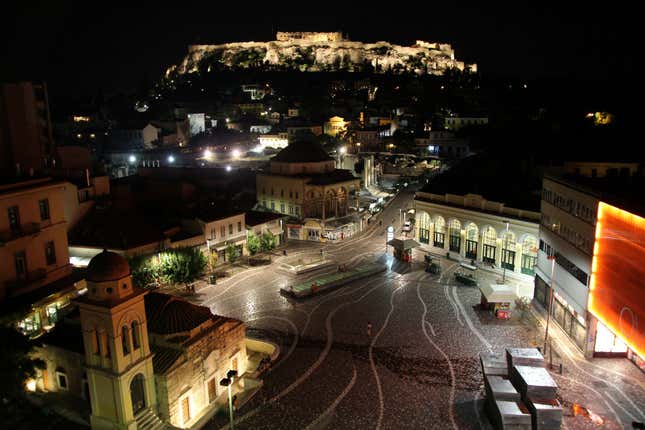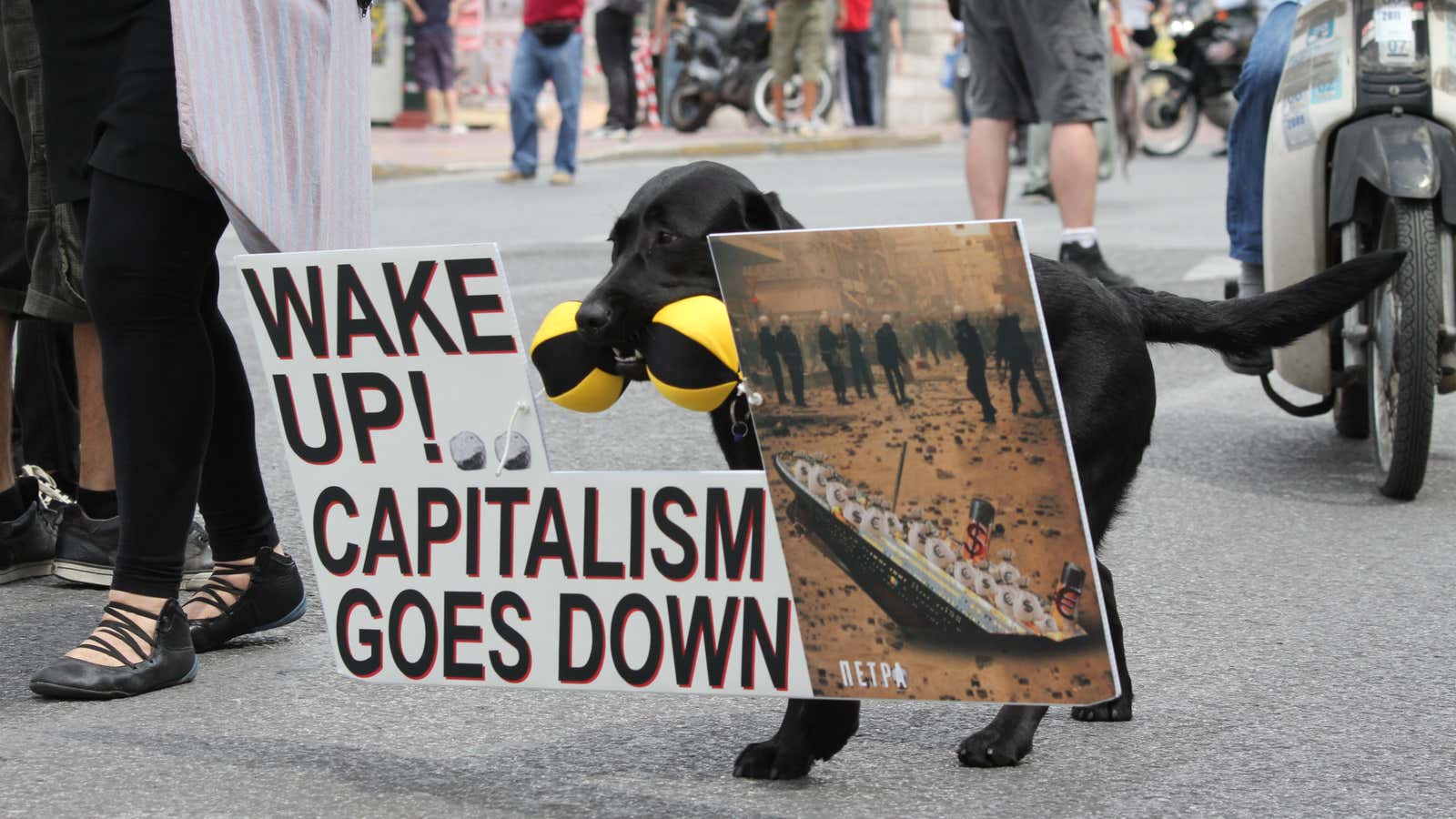“We tried to get out as fast as we could,” said one American tourist.
“We heard it was dirty, noisy and polluted, so we tried to avoid staying there for more than one night,” said another.
It was a gorgeous spring day in Paris in 2010 and I found myself on a cafe patio in Place des Contrescarpes next to a group of women who had just come from an island holiday in Greece. I had been curious about their impression of Athens, a place I knew well since I had lived on and off there for many years.
They had undoubtedly passed through the city on their vacation. Their reactions were not surprising. Few tourists have anything good to say about Greece’s sprawling, unruly capital which looks more like a Middle Eastern mega-city than a charming Western European capital.
Athens is indeed, far from picturesque when viewed from a crummy hotel near the notorious Omonia Square or from narrow, broken streets lined with drab concrete apartment buildings. Athens is also a city of smokers, coffee-drinkers and worriers who battle intense heat on early morning buses and sit on dark street corners at night arguing politics with friends and relatives.
I knew Athens before the Olympics of 2004; before it had become “European.” When I was 16-years-old, I visited Greece for the first time on a high school trip. Our class arrived at the old Athens airport at night to find a poorly lit, decrepit hangar that reeked of stale cigarettes and sweat. We were then loaded onto old buses with worn seat fabric and drove down a bumpy highway and narrow streets to our hotel. It could have easily been Beirut, Damascus or Cairo.
Since I have known Athens, it has gone through three phases of transformation: an Eastern metropolis, a European capital, and a rebel city whose future remains as uncertain as the country’s financial situation.
In 2005, I re-visited Athens while backpacking through eastern Europe. The change was dramatic. I saw a new subway system, a spectacular cobble stone pathway near the Acropolis and city workers cleaning the streets—something unknown before the Olympics graced the city and fed the government’s borrowing binge. Syntagma Square, with its marble ground, treed alcoves and quaint cafes, had now replaced the grim Omonia Square as the city center. “Time Out,” a trendy city-guide series, created its first Athens edition, showcasing the hundreds of new chic restaurants and cafes that had opened.

Since 2005, I returned every year, renting apartments or staying in a hotel for most of the summer watching Athens blossom into a European capital. The city was still home to hundreds of stray dogs, crooked taxi drivers and broken sidewalks, but new entertainment areas such as Psyrri and Gazi gave Athens a sheen that rivaled northern Europe’s trendier neighborhoods. By the middle of the decade, Athenians changed too. Better transport, breathable air and new infrastructure made for a more friendly and civilized city. Men kicking stray dogs on the street, commonplace a decade ago, was now considered aberrant behavior. More people lined up for buses and subways instead of pushing their way to the front. Easier access to credit, due in part to Greece’s joining the euro, meant bars, cafes and nightclubs were beautifully renovated. Prices climbed to match the new décor.
But that all changed quickly.
It turns out that most of those improvements were made with borrowed money that the government is not able to repay. Athens is now a city in crisis. Almost daily demonstrations rock downtown causing massive traffic jams and other disruptions. And mental illness is on the rise among Greeks. National pride and a sense of community, weak in Greece after hundreds of years of occupation and subsequent civil conflicts, has been shattered once again.
Outside my apartment one day last summer, I watched a young woman nonchalantly throw a used take-out container on the street.
An elderly man hobbled behind her and yelled at her to pick up her trash. She screamed and cursed at him for daring to question her.
“Look at the streets! Who cares!?” she yelled.
Civility and hope died on the streets during the crisis.
